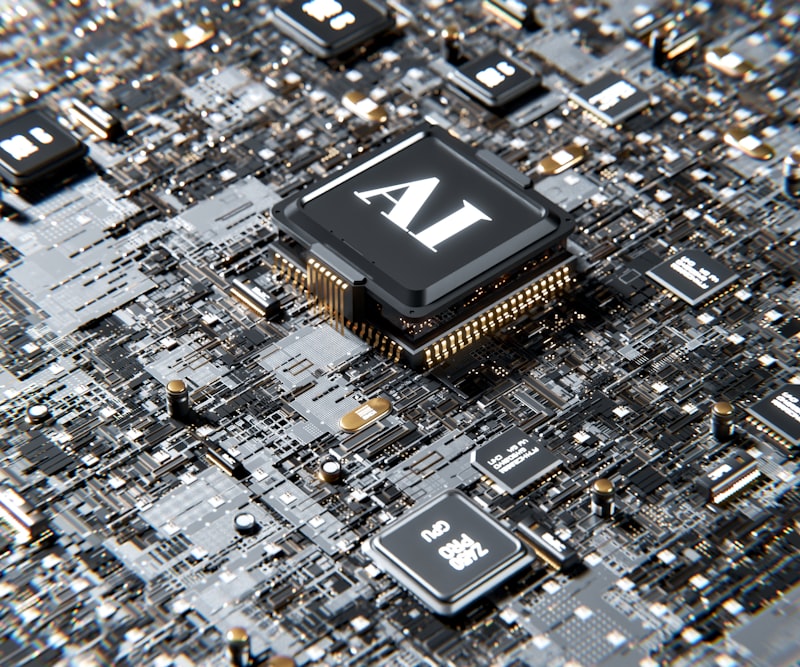What are the ımplications of aı for ınternational relations?
One of the profound implications of AI in international relations is its impact on security and defense strategies. Nations are leveraging AI to enhance their military capabilities, from autonomous drones to cybersecurity measures. This raises critical questions about ethics and regulations, as AI-powered weapons systems blur the lines between warfare and technology.
Economically, AI facilitates smarter trade decisions and economic forecasting. By analyzing trade patterns and market behaviors, AI helps countries identify lucrative opportunities and potential risks. It streamlines supply chains, optimizes logistics, and even predicts economic crises before they unfold.
Culturally, AI acts as a bridge between diverse societies, facilitating cross-cultural communication and understanding. Translation algorithms powered by AI enable diplomats to converse in multiple languages effortlessly, fostering smoother negotiations and collaborations on a global scale.
Moreover, AI plays a pivotal role in addressing global challenges such as climate change and pandemics. By analyzing environmental data or epidemiological patterns, AI assists in devising sustainable policies and healthcare strategies that transcend national borders.
However, with these advancements come challenges. The rise of AI necessitates international cooperation on regulatory frameworks to ensure transparency, accountability, and ethical use. Issues such as data privacy, algorithmic bias, and the potential for AI-driven misinformation require global consensus and collaboration.

AI Diplomacy: Redefining Global Power Dynamics
Artificial Intelligence (AI) is not just a technological advancement; it is reshaping the very fabric of global diplomacy and power dynamics. In today’s interconnected world, where nations vie for supremacy not only through military might but also through technological innovation, AI has emerged as a game-changer on the geopolitical stage.
At its core, AI diplomacy refers to the strategic use of artificial intelligence in shaping international relations and influencing decision-making processes among nations. Unlike traditional diplomacy, which relies heavily on human negotiation and statecraft, AI introduces algorithms and machine learning models that can analyze vast amounts of data with unprecedented speed and accuracy. This capability allows countries to predict economic trends, simulate geopolitical scenarios, and even optimize diplomatic strategies based on real-time information.
One of the key advantages of AI diplomacy lies in its ability to transcend cultural and linguistic barriers. AI-powered translation tools facilitate smoother communication between diplomats from different linguistic backgrounds, thereby fostering greater understanding and cooperation. Moreover, AI algorithms can sift through diplomatic texts and speeches to identify underlying sentiments and intentions, offering diplomats invaluable insights into the true motivations of their counterparts.
In the realm of global governance, AI is increasingly being utilized to address complex challenges such as climate change, cybersecurity threats, and pandemics. For instance, AI-driven models can predict the spread of infectious diseases or simulate the impact of climate policies, enabling policymakers to make more informed decisions that transcend national borders.
However, AI diplomacy is not without its challenges and ethical considerations. The use of AI in decision-making raises concerns about transparency, accountability, and biases embedded within algorithms. Moreover, there is a risk that AI could exacerbate existing power differentials between technologically advanced nations and those with limited AI capabilities.
Nevertheless, as AI continues to evolve, its role in diplomacy will likely expand, ushering in a new era of global governance where algorithms and data-driven insights play a pivotal role in shaping international relations. The key to harnessing the potential of AI diplomacy lies in striking a balance between technological innovation and ethical governance, ensuring that AI serves as a force for positive change on the global stage.
AI diplomacy represents a paradigm shift in how nations navigate the complexities of modern geopolitics. By leveraging the power of artificial intelligence, countries can enhance their diplomatic strategies, foster international cooperation, and address global challenges more effectively than ever before. As we venture further into the age of AI, its impact on global power dynamics is set to redefine the future of diplomacy as we know it.
The Rise of AI in Geopolitics: Challenges and Opportunities
Artificial Intelligence (AI) is reshaping the landscape of geopolitics, presenting both challenges and opportunities in today’s global arena. Imagine AI as a silent yet powerful player in the complex game of international relations, influencing decisions and strategies with remarkable speed and precision.
In recent years, AI has emerged as a game-changer in how nations navigate diplomatic relations and security concerns. Its ability to process vast amounts of data and analyze patterns enables governments to anticipate threats, track global trends, and make informed policy decisions in real-time. This capability not only enhances national security but also facilitates more efficient governance and economic planning.
However, with great power comes great responsibility. The integration of AI into geopolitics raises significant ethical and practical concerns. How do we ensure AI-driven decisions are fair and unbiased? Can AI truly comprehend the nuances of cultural and political contexts that shape international relations? These questions highlight the need for transparent governance frameworks and international cooperation in AI development and deployment.
Moreover, the rapid advancement of AI technology poses challenges in maintaining strategic balance among nations. As countries invest heavily in AI research and development, there is a risk of creating new divides between technologically advanced states and those lagging behind. This technological divide could potentially exacerbate existing geopolitical tensions and inequalities on a global scale.
On the flip side, AI offers unprecedented opportunities for collaboration and innovation in geopolitics. By enhancing diplomatic negotiations, predicting economic trends, and supporting humanitarian efforts, AI has the potential to foster greater global stability and cooperation. Imagine AI algorithms facilitating cross-border dialogue or optimizing disaster response strategies—these scenarios illustrate AI’s transformative potential in fostering a more interconnected and resilient world.
The rise of AI in geopolitics signifies a paradigm shift in how nations perceive and interact with each other on the world stage. While it presents challenges that must be addressed with careful consideration, AI also opens doors to new possibilities for global governance and cooperation. As we navigate this evolving landscape, harnessing AI’s potential responsibly and collaboratively will be key to shaping a future where technology serves humanity’s greater good.
How Artificial Intelligence Is Reshaping International Security
One of the most striking impacts of AI on international security lies in its ability to revolutionize threat detection and response. Imagine an AI system that can sift through vast amounts of data—satellite imagery, social media feeds, financial transactions—and identify potential security threats with unprecedented speed and accuracy. This capability not only enhances the ability to anticipate and prevent conflicts but also enables more targeted and effective responses when crises do arise.
Moreover, AI is increasingly being integrated into military operations, offering capabilities that were once confined to the realm of science fiction. Autonomous drones capable of making split-second decisions, AI-driven cybersecurity defenses that adapt in real-time to evolving threats, and even predictive models that forecast geopolitical trends—all of these innovations are redefining what it means to secure nations and protect global stability.
Beyond traditional defense applications, AI is also playing a crucial role in diplomatic efforts and peacekeeping missions. Natural language processing algorithms are facilitating better communication between nations by instantly translating languages and analyzing diplomatic texts for sentiment and intent. This enhances negotiation processes and fosters mutual understanding, reducing the risk of misunderstandings or escalations.
However, with these advancements come ethical and strategic considerations. The deployment of AI in security contexts raises concerns about accountability, transparency, and unintended consequences. As AI systems become more autonomous, questions about oversight and control become increasingly urgent.
AI’s Influence on Global Governance and Policy Making
One of the most profound impacts of AI on global governance lies in its ability to process vast amounts of data at speeds far beyond human capability. This computational power allows AI systems to analyze trends, predict outcomes, and recommend strategies with remarkable accuracy. For instance, AI algorithms can sift through terabytes of economic data to identify emerging market trends or predict the impact of policy changes on employment rates.
Moreover, AI enhances decision-making processes by reducing biases inherent in human judgment. By relying on data-driven insights rather than subjective opinions, policymakers can make more objective and equitable decisions. This shift is particularly crucial in sensitive areas like healthcare allocation or environmental policy, where fairness and efficiency are paramount.

AI’s influence on global governance and policy making is profound and multifaceted. By leveraging its computational prowess and data-driven insights, AI empowers governments to make informed decisions, streamline operations, and address complex challenges more effectively. As AI technologies continue to evolve, their role in shaping the future of governance promises to be increasingly transformative and indispensable.
Ethical Quandaries: AI’s Role in International Law and Justice
AI’s role in international law is multifaceted. It offers capabilities such as data analysis, prediction modeling, and automated decision-making, which can streamline legal processes and enhance efficiency. For instance, AI-powered algorithms can sift through vast amounts of legal data, helping lawyers and judges identify relevant precedents and trends swiftly. This capability not only saves time but also improves the accuracy of legal outcomes.
However, the integration of AI in international law also presents ethical dilemmas. One major concern is the potential bias in AI algorithms, which are trained on historical data that may reflect human biases. If not properly addressed, these biases can perpetuate inequalities and injustice, especially in sensitive legal decisions involving human rights and international disputes.
Moreover, the transparency and accountability of AI systems in legal settings remain critical issues. Unlike human judges whose decisions can be scrutinized and appealed, AI’s decision-making processes can sometimes seem opaque and difficult to challenge. Ensuring that AI decisions are explainable and fair is essential for maintaining trust in legal AI applications.
On the other hand, AI holds promise in promoting global justice by enhancing access to legal information and services in underserved regions. AI-powered translation tools, for example, can facilitate communication in multilingual legal proceedings, bridging language barriers and ensuring fair representation.
While AI offers unprecedented potential to transform international law and justice, its ethical implications must be carefully considered and addressed. Balancing innovation with ethical standards is crucial to harnessing the full benefits of AI while mitigating its risks in the pursuit of a more just global legal system.
From Diplomatic Algorithms to Cyber Warfare: AI’s Global Impact
In the realm of diplomacy, AI algorithms are not mere tools but strategic assets. They analyze vast amounts of diplomatic data, predicting trends, identifying allies and adversaries, and even suggesting negotiation tactics. These algorithms operate like invisible diplomats, working tirelessly to enhance decision-making and foster international cooperation.
However, AI’s impact extends far beyond diplomacy into the realm of cyber warfare. In the digital age, nations are not only battling on physical fronts but also in cyberspace. AI-driven cyber warfare involves sophisticated algorithms capable of launching coordinated attacks, detecting vulnerabilities, and defending against intrusions with lightning speed and precision.
The advent of AI has blurred the lines between conventional and cyber warfare. Countries now invest heavily in AI technologies to gain strategic advantages, leading to a new arms race where algorithms are the weapons of choice. This shift has prompted global debates on ethics, regulations, and the future of warfare itself.
Moreover, AI’s influence transcends military and diplomatic domains, permeating various aspects of society. From healthcare to finance, AI algorithms are revolutionizing industries, streamlining processes, and predicting outcomes with unprecedented accuracy. The pace of innovation driven by AI shows no signs of slowing down, raising both hopes for a better future and concerns over its ethical implications.
As we navigate this AI-driven era, understanding its global impact becomes crucial. How will nations adapt to these technological advancements? What safeguards are needed to prevent misuse of AI in warfare? These questions underscore the need for international collaboration and ethical guidelines to harness AI’s potential while mitigating risks.
AI’s journey from diplomatic algorithms to cyber warfare signifies a paradigm shift in global affairs. It’s a journey where algorithms wield influence beyond borders, reshaping the landscape of international relations and the future of warfare. As we embrace AI’s transformative power, the world must navigate these uncharted waters with caution and foresight.
AI and Diplomatic Strategy: Navigating 21st Century Challenges
AI, or Artificial Intelligence, isn’t just about machines replacing humans; it’s about augmenting our capabilities to achieve more effective and informed decisions. In diplomatic circles, where every word and action can have far-reaching consequences, AI acts as a force multiplier. It analyzes historical precedents, economic indicators, and even social media sentiments to provide diplomats with a comprehensive view of evolving geopolitical landscapes.
Consider AI as a diplomat’s assistant, tirelessly scouring through diplomatic cables, economic reports, and news headlines from around the globe. Much like a skilled chess player, it anticipates moves and counter-moves, suggesting optimal strategies for fostering alliances or mitigating conflicts. This ability to predict and preempt gives diplomats an unprecedented edge in negotiations and crisis management.
Furthermore, AI enhances diplomatic agility. In a world where information travels at the speed of light, decisions must be swift and well-informed. AI processes information in real-time, allowing diplomats to respond to unfolding events with precision and insight. It’s akin to having a seasoned advisor who can analyze multiple scenarios simultaneously, advising on the most prudent course of action.
However, the integration of AI in diplomacy isn’t without its challenges. Ethical considerations, data privacy concerns, and the risk of algorithmic bias are all critical factors that must be carefully navigated. Diplomacy, after all, is fundamentally about human relationships and trust-building, areas where AI’s role remains supplementary rather than primary.
AI represents a transformative force in diplomatic strategy, offering unparalleled capabilities to understand, anticipate, and respond to the complexities of the modern world. As AI continues to evolve, so too will its role in shaping the future of international relations, challenging diplomats to adapt and harness its potential responsibly and effectively.

